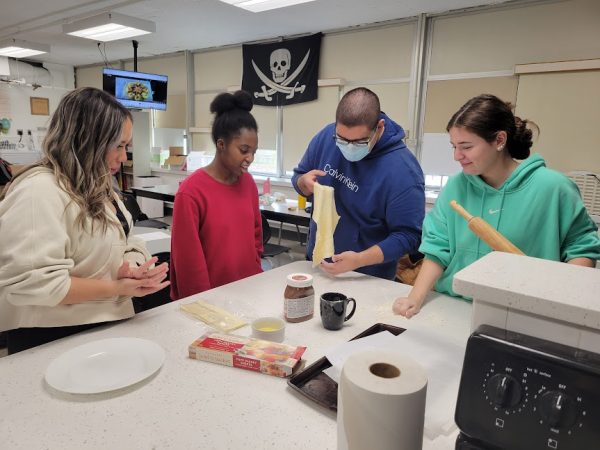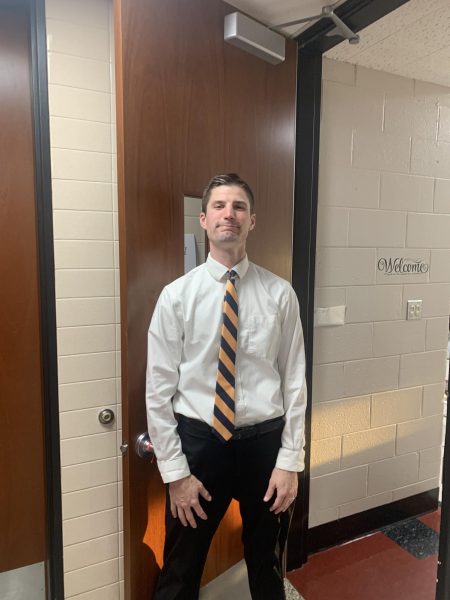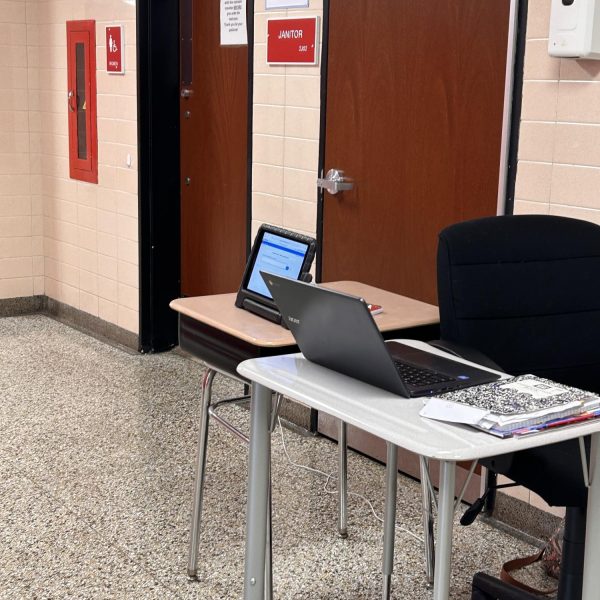Covid-19-Pandemic and Mental Health:A Spotlight on CHS
This story is part of an ongoing Mental Health coverage series by the CHS Ship’s Log.
Facing the two-year anniversary of the pandemic, Covid-19 has continued to be a running news story since March 2020. In order for the public education system to continue instruction despite Covid-19 closures, many schools opted for a shift to a virtual, remote-learning option. Other districts limited the students in the building by establishing a cohort system; others yet supplied students with materials necessary for independent work completion. The extended period of isolation during quarantine caused some students, mainly young adults and teenagers who need interaction for development, to slip into a cycle of different mental health issues.
“The coronavirus disease 2019 (COVID-19) pandemic has been associated with mental health challenges related to the morbidity and mortality caused by the disease and to mitigation activities, including the impact of physical distancing and stay-at-home orders,” the CDC stated. “Symptoms of anxiety disorder and depressive disorder increased considerably in the United States during April–June of 2020, compared with the same period in 2019.”
As a result of the Covid-19 pandemic, mental health issues among students have increased according to the CDC. Anthony Faltz, Cinnaminson High School’s Crisis Counselor, understands how a student’s perspective during the pandemic and quarantine can be affected.
“It is like I want to do things and I can’t, I physically cannot get out of bed and the world looks so dark that after a day maybe it’s okay but after a week, after a month, after almost three years of this I’m emotionally and physically exhausted,” Faltz said. “That’s what Covid has been doing to us and if we don’t start seeing these signs and start really being active and getting ourselves mentally and physically better, which are to be connected, that’s where you see a lot of negative effects.”
Anthony Ferrante, one of Cinnaminson High School’s counselors, said he felt that he had difficulty staying on top of things during the pandemic so he understands how students would be struggling as well.
“I would say a lot more students are struggling without being able to put into words why they’re struggling,” Ferrante explained. “They just know they’re having trouble getting up in the morning or feeling anxious without really attaching that emotion to a single incident.”
The mandatory quarantine and social distancing protocols put in effect created an environment where people may have experienced feelings of anxiety.
“Public health actions, such as social distancing, are necessary to reduce the spread of COVID-19, but they can make us feel isolated and lonely and can increase stress and anxiety,” the CDC explained.
A loss of motivation and enthusiasm from quarantine and social distancing can be linked to issues with mental health in some individuals.
“I feel like students are less motivated since Covid,” senior Lindsay Jeffries said. “I’ve noticed people have shown less effort and they have become less enthusiastic.”
Elizabeth Kilroy, another Cinnaminson High School counselor, shared how students showed resilience when faced with the effects of Covid.
“I think students are extremely resilient and had to shift so many times and it really was very hard for students, but they were able to get through that and shift from remote, to online, and to hybrid – every different way of learning,” Kilroy said.
When it came to the new roles staff members had to take on during the pandemic, the shifts had the ability to change day-to-day life. Cathy Glisson, the Cinnaminson High School nurse, is in her second year working at CHS, with no experience working at CHS prior to the Covid pandemic.
“From the end of December there were 135 staff and students added to the Covid tracker as positives,” Glisson said. “There were times where all I could do was focus on Covid and it felt like you were just treading above water.”
The focus that many people had on Covid made it difficult for some people to focus on anything else. When it comes to health professionals, like nurses in schools, there was pressure to remain on top of the pandemic.
“When the numbers were high all I did were contact traces,” Glisson said. “All of your other roles kind of fall to the wayside and when the Covid numbers are high you just try to get through the day.”
The normal roles of students and staff also shifted during Covid-19. In order to adjust they had to adapt to a new way of learning.
“I think it’s just been exhausting for everybody,” Kilroy said. “I think it’s been really hard and just like students were adjusting, teachers were learning all new ways and modes of teaching through remote learning as well as Google Classroom.”
After figuring out the adjustments in living and learning during a pandemic, Jeffries mentions how it is still important to find ways to feel normal.
“Although the isolation aspect of Covid has impacted some more than others, it is important to get outside and see friends in order to get a sense of normalcy,” Jeffries said.
Ferrante thinks it is imperative for students to understand that how they feel as a result of Covid-19 is not their fault and they should not blame themselves.
“What bothers me is when students are hard on themselves,” Ferrante said. “They feel like somehow because they’re not coping well that somehow they’re a failure or that they’re less than and that bothers me because it’s a pandemic!”
Kilroy finds it important for students to know that they are not alone and that they can get support.
“It’s been very typical for students to struggle in all different ways,” Kilroy said. “It is important to give them the option to come down and share and understand that that’s okay.”
According to the National Research Corporation, the Covid-19 pandemic has “shed light” on mental health, specifically, the mental health of the youth population.
“That’s a positive of this too,” Ferrante said. “I think Covid has put a spotlight on mental health around the world and that’s needed.”
















